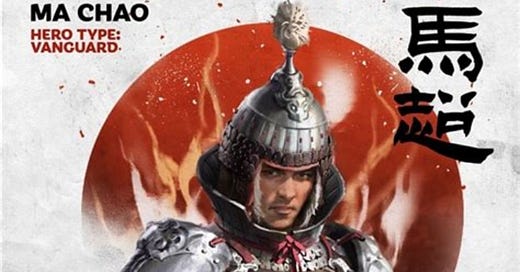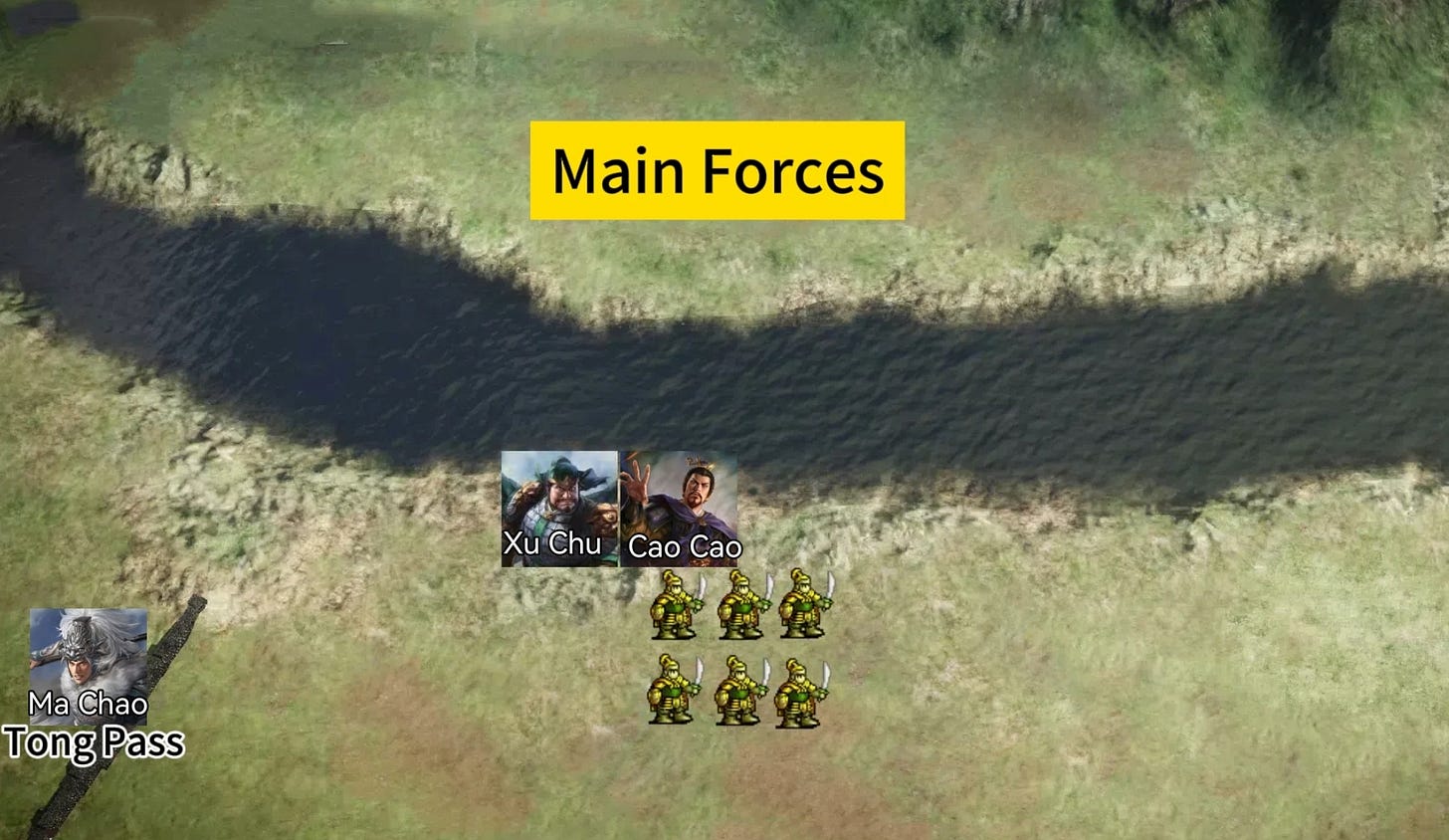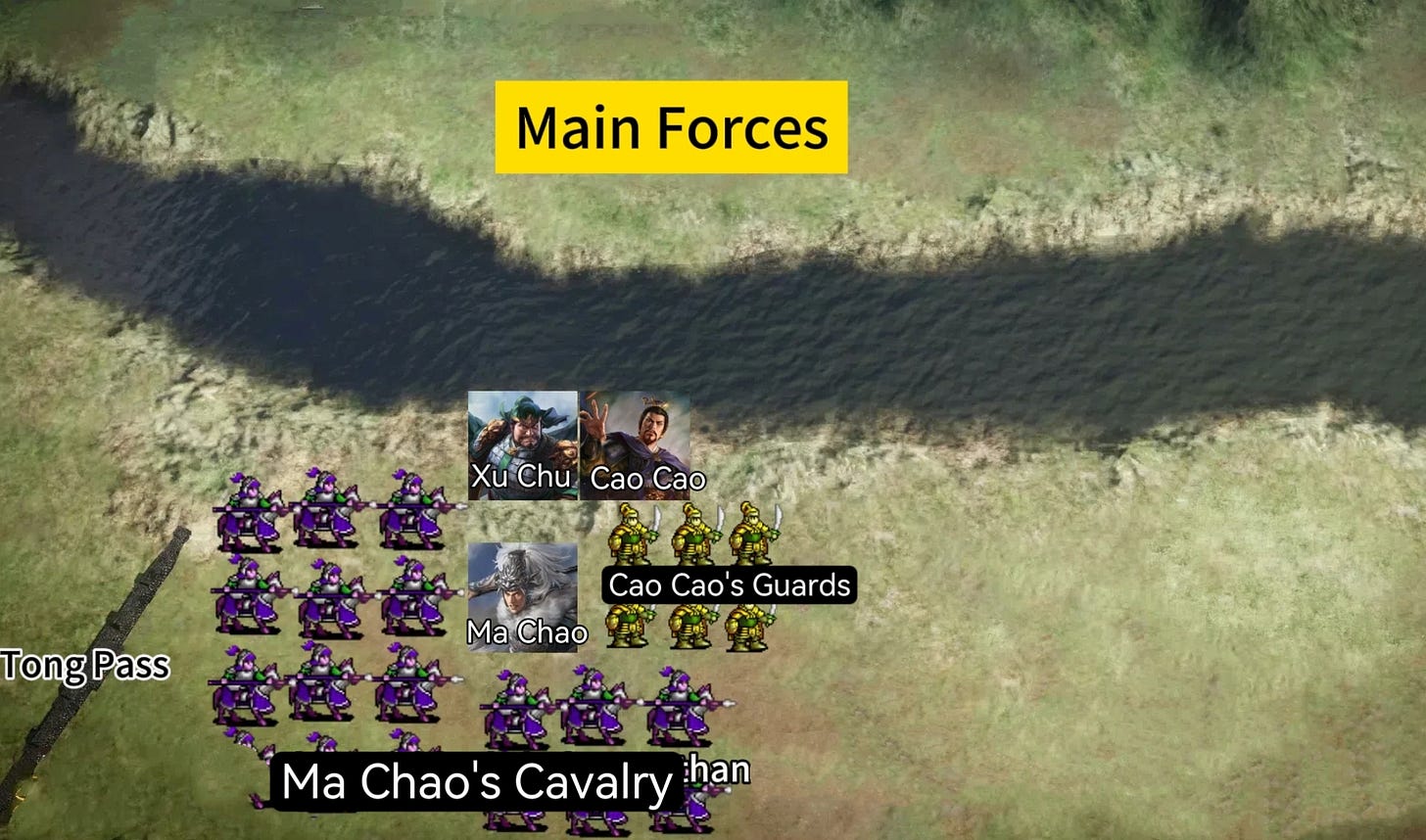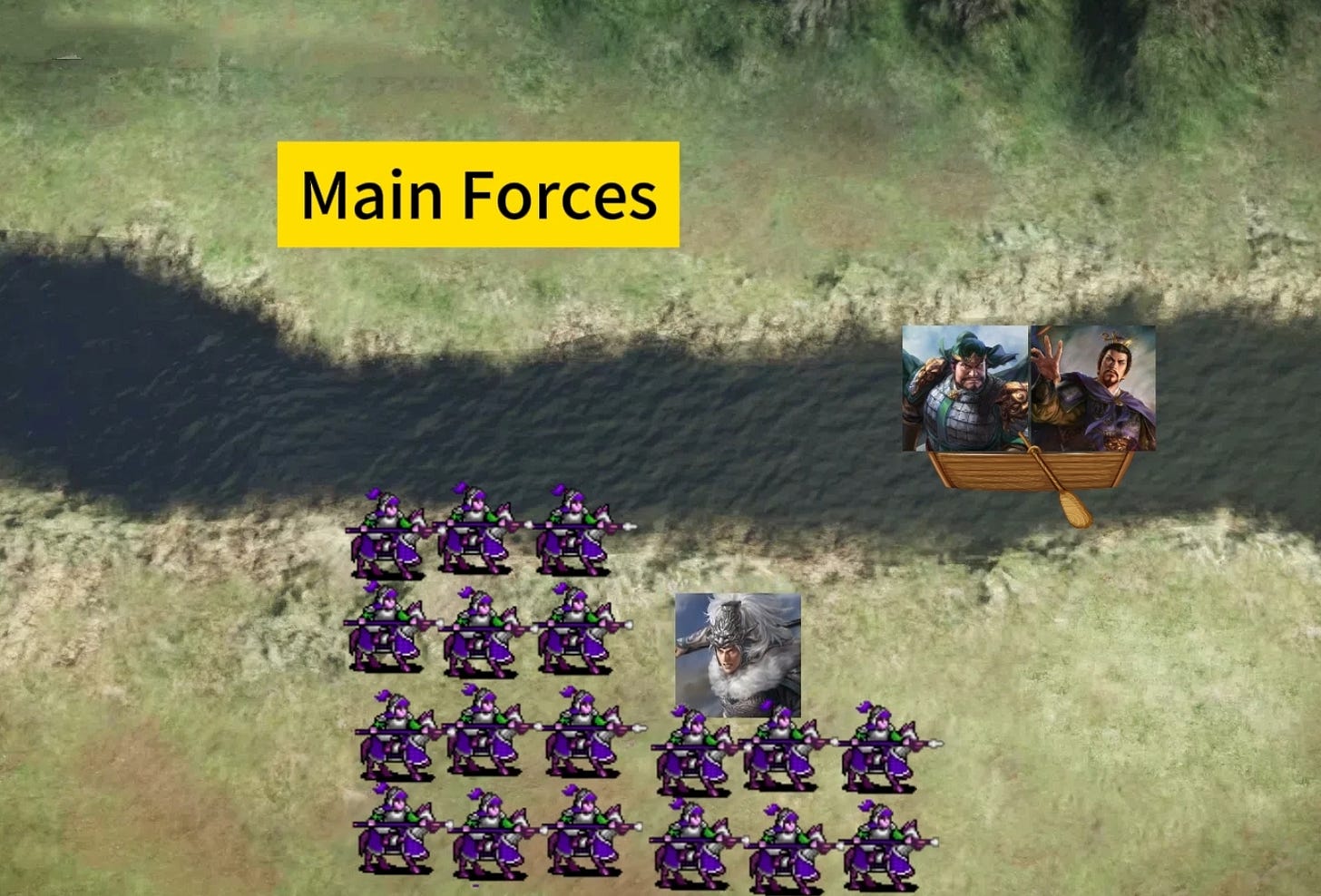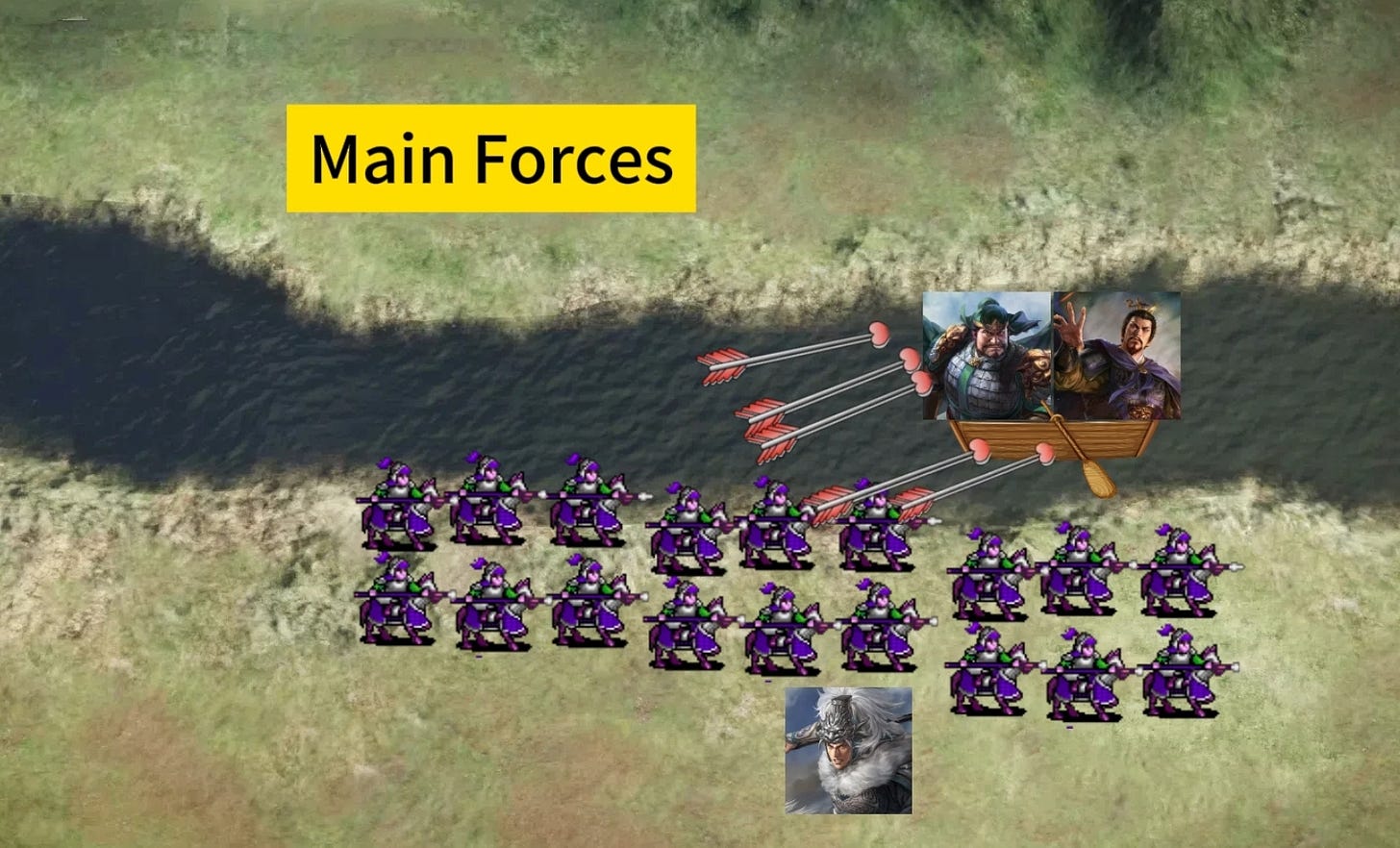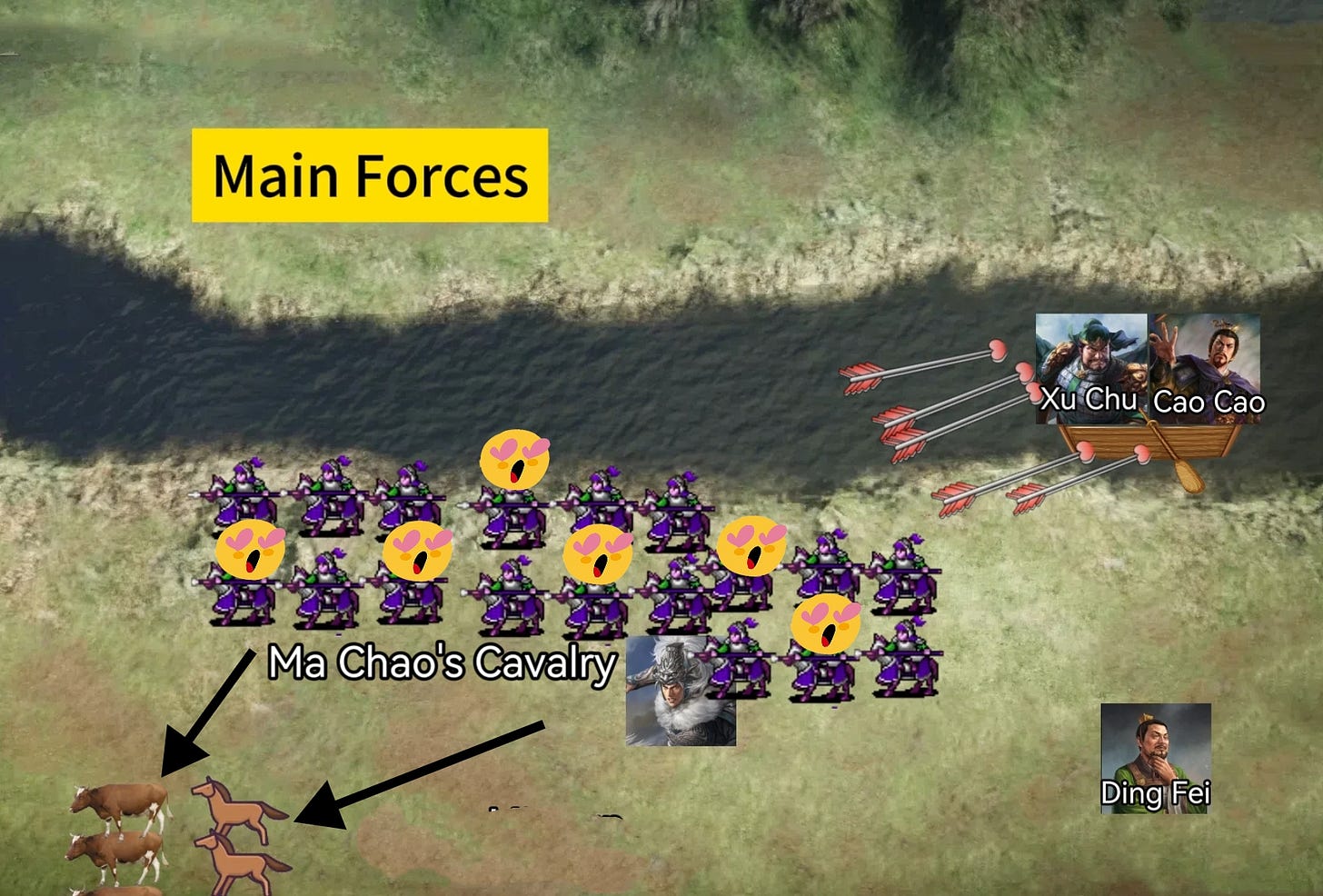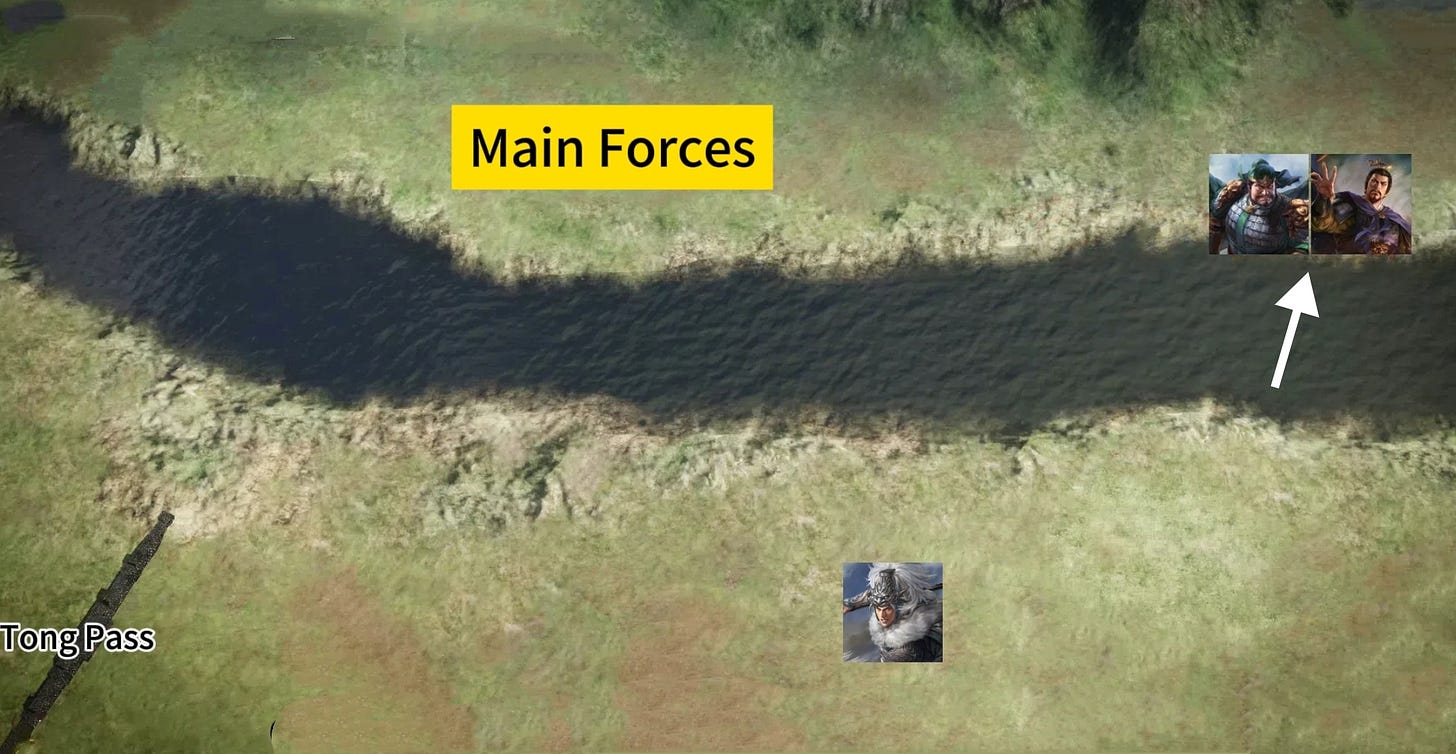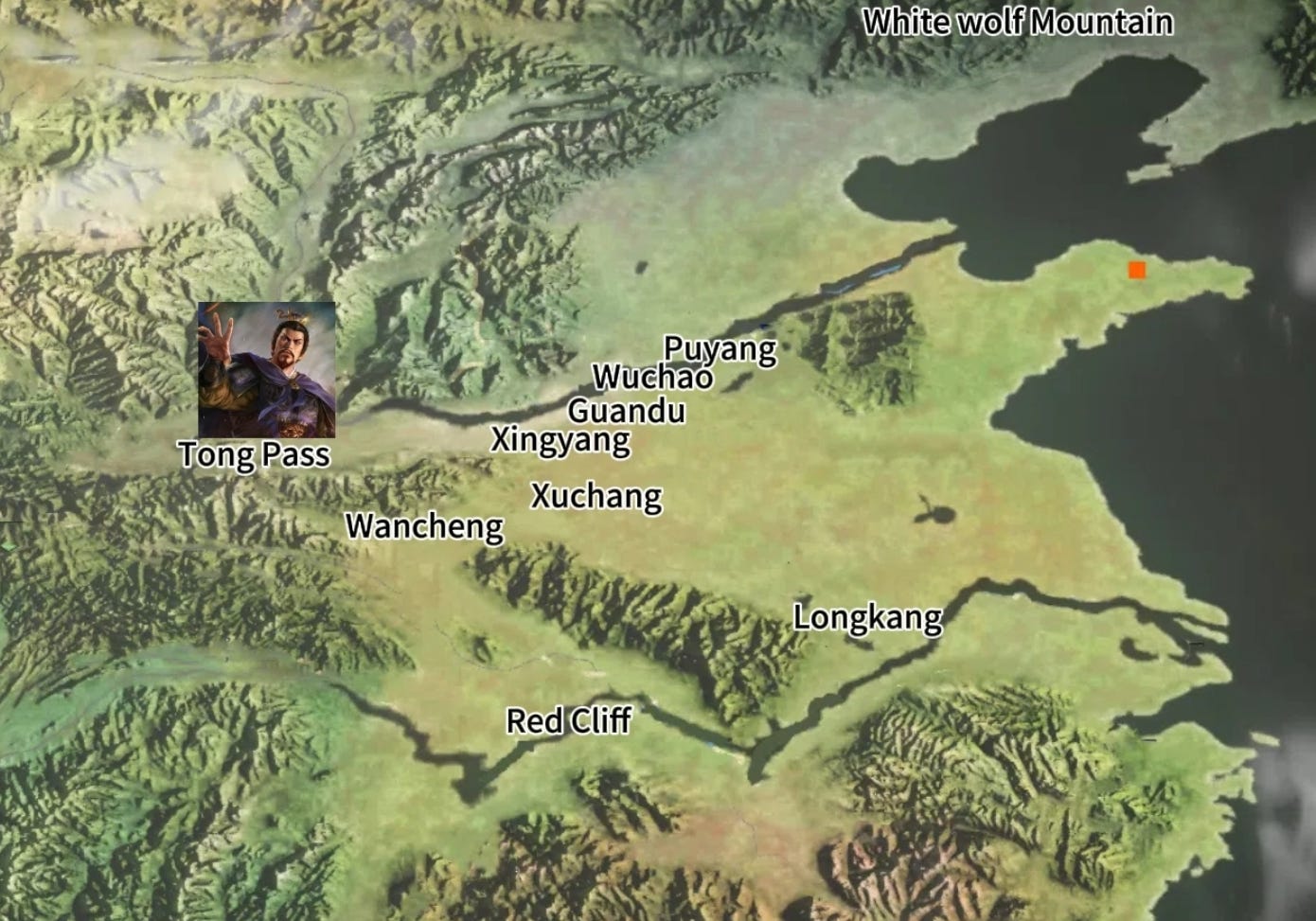How Close Was Ma Chao to Killing Cao Cao?(Three Kingdoms 67)
Cao Cao's Campaign against Ma Chao 2
Previous Chapter :Cao Cao – A Strategist’s Brushstroke on the Canvas of War
In terms of military command, Cao Cao stood unparalleled during the late Han Period.
Whenever major battles arose, he personally took charge at the frontlines. During troop movements or retreats, he habitually oversaw the rear guard himself—a practice honed over decades.
At this critical moment, most of Cao’s main force had already crossed the Yellow River. Only Xu Chu许褚 and about 100 guards remained by Cao Cao’s side.
Suddenly, Ma Chao led over 10,000 Xiliang troops in a charge from Tong Pass. Outnumbered 100-to-1, Cao’s tiny guard unit faced annihilation.
Yet Cao Cao remained eerily calm. He sat leisurely on a camp stool, eyes closed, as if unshaken by the chaos—a demeanor worthy of the proverb "unmoved even if Mount Tai crumbled before him."
While Cao radiated unshakable confidence, Xu Chu, frantic with urgency, forcibly dragged him to flee.
By the riverbank lay a single small boat. With Ma Chao’s vanguard closing in, guards scrambled aboard, nearly capsizing the vessel. Xu Chu drew his sword, roared, and slaughtered several panicking men to restore order.
The Yellow River’s currents here were fierce. The boat drifted downstream almost immediately. Ma Chao led his cavalry in pursuit along the bank for 2 km, raining arrows upon the defenseless boat.
No shields were aboard, and even the boatman fell to arrows. Xu Chu shielded Cao Cao with a saddle in his left hand while steering with his right. The boat, now bristling with arrows, continued its perilous drift.
Ding Fei丁斐, a fellow townsman of Cao Cao still on the southern bank, devised a clever ruse. He ordered his cavalry to release their saddled horses and supply-laden oxen. Ma Chao’s soldiers, dazzled by the robust livestock, abandoned pursuit to plunder the animals. Seizing the distraction, Xu Chu rowed the boat to the northern shore.
Cao’s generals on the north bank, hearing distant battle cries but unable to see details, grew desperate as Cao’s boat failed to arrive. Some clamored to return and rescue their lord, wailing and beating their chests; others mourned, believing Cao Cao dead.
When Cao Cao and Xu Chu finally strolled back along the northern bank, the generals erupted in tearful relief. Yet Cao Cao merely laughed to the skies: “Today, I nearly fell prey to those petty bandits!”
At age 36, during the coalition campaign against Dong Zhuo董卓, Cao Cao suffered a crushing defeat at Xingyang荥阳 by Xu Rong徐荣, taking an arrow to his body. He escaped only after Cao Hong曹洪 surrendered his own horse.
That same year, while recruiting troops in Yangzhou扬州 with Xiahou Dun夏侯惇, his camp at Longkang龙亢 was set ablaze during a mutiny. Cao Cao hacked down dozens of rebels with his sword to escape the burning tent.
At 40, trapped in Puyang濮阳 by Lü Bu’s吕布 cavalry, Cao Cao narrowly avoided recognition in the darkness. He pointed to a distant rider and shouted, “The man on the yellow horse is Cao Cao!” Seizing the confusion, he fled the city—though his left hand was badly burned.
At 42, he personally escorted the Han emperor from Luoyang洛阳 to Xuchang许昌, initiating his era of “manipulating the emperor to consolidate power internally while dominating the lords externally.” Though seemingly triumphant, this move was perilous: famine ravaged the Central Plains, and his army lacked food. Only through Yang Pei杨沛, magistrate of Xinzheng新郑 County(Today’s Zhengzhou郑州), who donated vast stores of dried mulberries, did his troops avoid starvation.
At 43, Zhang Xiu’s张绣 surrender and subsequent rebellion cost Cao Cao his son, nephew, and nearly his own life at Wan宛. An arrow struck him, and he survived solely due to Dian Wei’s典韦 sacrificial last stand.
At 45, during the Guandu官渡 Campaign, conspirators led by Xu Ta徐他 infiltrated his quarters while Xu Chu was off duty. Xu Chu, struck by a sudden foreboding, rushed back and slaughtered the assassins, saving Cao Cao once more.
At 46, with just 5,000 troops, Cao Cao raided Yuan Shao’s袁绍 heavily fortified grain depot at Wuchao乌巢, defended by over 10,000 elite soldiers under Chunyu Qiong淳于琼. Outnumbered and surrounded, he led a desperate charge, capturing the depot against all odds.
At 53, during the White Wolf Mountain campaign against the Wuhuan乌桓(A nomadic tribe), he marched 250 km through barren lands. Soldiers dug 30-meter wells for water and slaughtered thousands of horses for food. Emerging from this ordeal, his ragged force faced the fresh, numerically superior Wuhuan cavalry. Only Zhang Liao’s张辽 fearless leadership turned certain defeat into victory.
At 54, after the Red Cliffs disaster, he fled through swamps over the bodies of his own weakened troops to evade Liu Bei’s pursuit. It took two years to recover from this humiliation.
His final brush with death came at age 57 during the Yellow River crossing, where Xu Chu’s valor and Ding Fei’s cunning spared him from becoming a “porcupine” of arrows.
A Life Forged in Fire
From raising his banner to his death, Cao Cao cheated death at least ten times. Though he never ruled as emperor, unifying northern China alone ranks among history’s most arduous feats.
Xingyang, Longkang, Puyang, Xuchang, Wancheng, Guandu, Wuchao, White Wolf Mountain, Red Cliffs, Tong Pass—these ten sites map his perilous journey: a tapestry of eastern conquests, northern campaigns, and countless near-fatal wounds.
After the Yellow River incident, he grew cautious, no longer risking his life as recklessly. By his death, the once-fearless warrior who defied cliffs, traversed abysses, and bathed in blood had ceased his daring gambits.
An era of upheaval and heroism faded with him.
“When such a warlord—tempered by trials, reborn in carnage—dimmed the light that had shone for four centuries, what remains but to marvel at heaven’s inscrutable will?”
To be Continued.
Your support is my greatest motivation!

